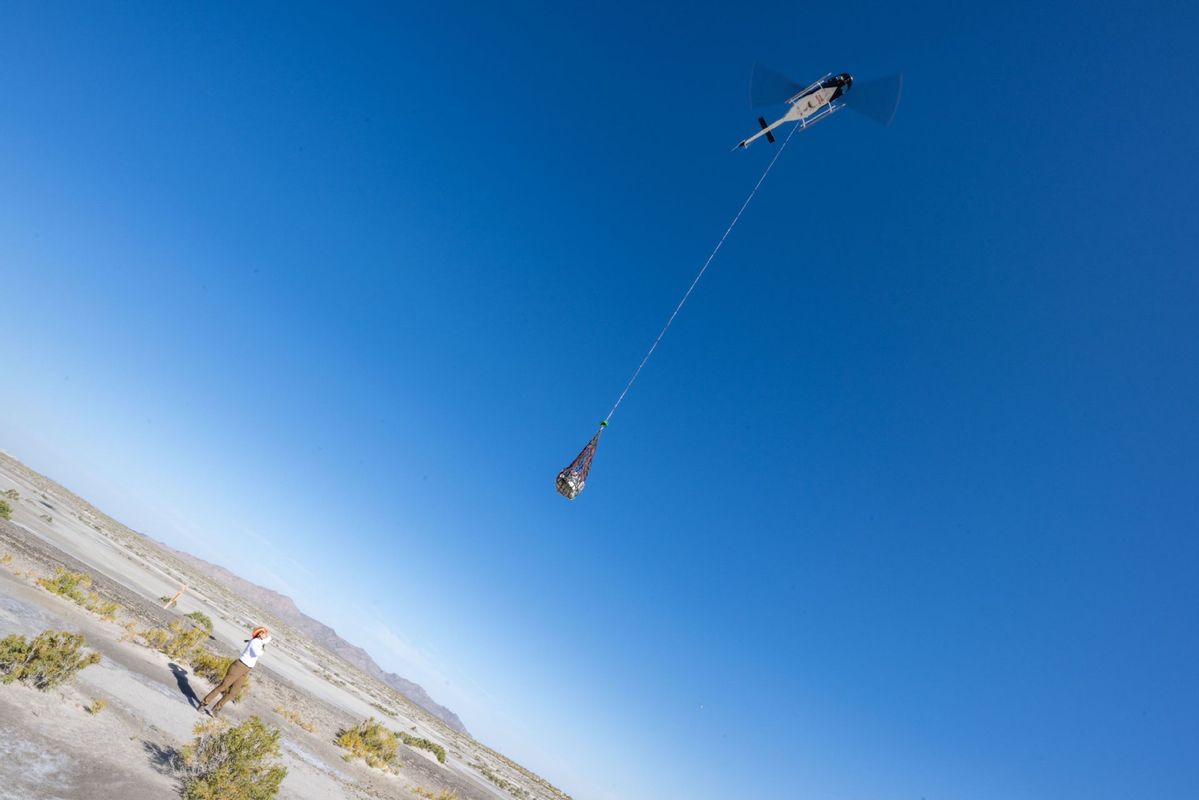1st US asteroid sample mission returns sample to Earth
Xinhua | Updated: 2023-09-25 09:28

LOS ANGELES -- NASA's OSIRIS-REx spacecraft, the first US mission to collect a sample from an asteroid, returned Bennu asteroid sample to Earth on Sunday.
This marks America's first sample return mission of its kind and "will open a time capsule to the beginnings of our solar system," said NASA.
The spacecraft released its sample capsule toward Earth at 6:42 am Eastern Time (1042 GMT) from about 101,000 km of Earth's surface, about one-third the distance from Earth to the Moon, it said.
The capsule entered Earth's atmosphere as planned at 10:42 am Eastern Time (1442 GMT) off the coast of California.
About 10 minutes later, it touched down on the US Department of Defense's Utah Test and Training Range at 10:52 am Eastern Time (1452 GMT). The sample will be transferred to NASA's Johnson Space Center in Houston, Texas, on Monday for scientific analysis.
Launched on Sept. 8, 2016, OSIRIS-REx arrived at asteroid Bennu on Dec. 3, 2018. It collected a sample of rocks and dust from Bennu surface on Oct. 20, 2020.
Bennu is likely to be a well-preserved, 4.5 billion-year-old remanent of the early solar system, so the samples should provide insight into the role that similar asteroids played in the formation of planets and the delivery of organic material and water to Earth that may have ultimately led to life, said NASA.
Data collected from the OSIRIS-REx mission will also help scientists better understand asteroids that could impact Earth and inform future asteroid deflection efforts, according to NASA.
After releasing its sample capsule into Earth's atmosphere, the spacecraft takes on a new journey to asteroid Apophis, for a close-up look at an S-type asteroid.
Apophis, roughly 1,000 feet wide, will come within 20,000 miles (32,187 km) of Earth in 2029 -- less than one-tenth the distance between Earth and the Moon.
The new mission, named OSIRIS-APEX, is scheduled to enter orbit of Apophis soon after the asteroid's close approach of Earth to see how the encounter affected the asteroid's orbit, spin rate, and surface, according to NASA.
























